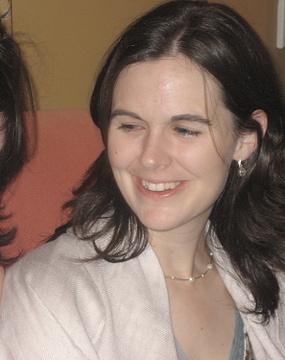Alexandra Cox's new book says juvenile justice systems are failing to change lives for the better.
My research asks that we closely interrogate all institutions which confine young people and consider the core questions of liberty and justice that they raise.
Alexandra Cox
Juvenile justice systems aimed at changing the lives of young people for the better are instead trapping them in a vice-like system they struggle to move beyond, according to a new book by Gates Cambridge Scholar Dr Alexandra Cox.
Trapped in a Vice: The Consequences of Confinement for Young People is the result of a three-year study inside New York’s juvenile justice system. Alexandra, who is now a Lecturer in Criminology at the University of Essex, interviewed and observed 39 young people aged between 15-24 years in secure juvenile facilities, courts, detention facilities and the community.
She also interviewed and observed frontline staff in two secure juvenile facilities as part of further research.
She said: “Over the years, proposals have been made to shift young people out of adult prisons into juvenile facilities, and from juvenile facilities into mental health institutions, or to more child welfare and social care-oriented institutions, such as residential care homes. My research asks that we closely interrogate all institutions which confine young people and consider the core questions of liberty and justice that they raise.”
Alexandra [2007], who did her PhD in Criminology with the support of a Gates Cambridge Scholarship, found that young people in secure juvenile facilities are expected to conform to a regime that is primarily focused on order and control. As a result, other objectives, such as a focus on their education and physical and mental well-being, get sidelined.
She said: “Any resistance to the required conformity is punished. Yet some of that resistance is often either developmentally normal or is a serious attempt by that young person to get their educational and emotional needs met.”
Dr Cox also looked at the consequences of confining BAME young people and found that as youth justice systems have grown smaller, the levels of BAME young people in the system have risen disproportionately and the control experienced in the facility has begun to reflect broader institutionalised forms of racism.
She said: “Institutionalised racism was expressed both in a subtle way, through the expectations of staff for deference and respect, but also in more overt ways, through the use of animal metaphors to describe the young people and the suggestion that the only way that they could be brought under control was through physical force and restraint.”
While inside the secure residential system, she found that some staff and administrators did seek to implement practices that would support young people. These included the development of reading programmes and libraries, arts and athletic programmes and a university degree-granting programme. They also included improved bridges to care on the outside, including guarantees of housing, university entrance and health insurance.
Yet Alexandra found there was a greater focus by the authorities on expanding therapeutic programming and even on beautifying the juvenile facilities. This made it difficult to get financial and material support for better educational and resettlement programming.
She concluded: “Efforts at reform in the system must not neglect to see that even if facilities look and feel nicer, the development and care of young people is nearly impossible to achieve within secure confinement as the obstacles are far too great to the realisation of their development.”
*Trapped in a Vice: The Consequences of Confinement for Young People is published this week by Rutgers University Press.

Alexandra Cox
- Alumni
- United States
- 2007 PhD Criminology
- Trinity Hall
I am committed to integrating theoretical, empirical and advocacy work on punishment and incarceration in order to contribute to a more humane justice system. I will be researching adolescents’ perceptions of fairness and the legitimacy of power in youth prisons, focusing on how these perceptions impact adolescents' well-being while they are incarcerated. My goal is, as an academic, to examine the broader implications of social policy, but also to tell, through empirical research, the stories of those most affected by the social policy of crime and punishment.
Previous Education
University of Cambridge MPhil in Criminology 2007
Yale University 2001












